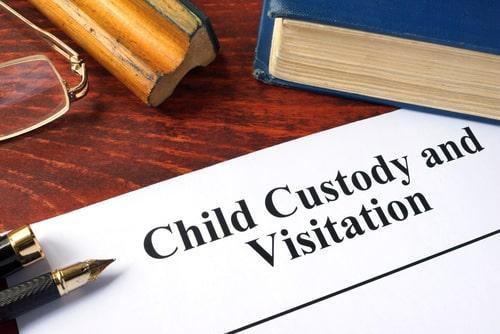What Are Caretaking Functions in Child Custody?
 If you are going to file for divorce and you have minor children from your marriage, or if you are in the early stages of a DuPage County divorce case that will involve child custody, it is important to understand how Illinois law defines child custody and how courts in the state handle child custody cases. As you might already know, the Illinois Marriage and Dissolution of Marriage Act (IMDMA) governs child custody or the allocation of parental responsibilities. Rather than awarding child custody to one or both parents, Illinois courts allocate parental responsibilities, which include significant decision-making responsibilities and parenting time. Significant decision-making responsibilities are somewhat akin to what courts used to describe as legal custody, while parenting time is somewhat akin to what courts used to describe as physical custody and visitation.
If you are going to file for divorce and you have minor children from your marriage, or if you are in the early stages of a DuPage County divorce case that will involve child custody, it is important to understand how Illinois law defines child custody and how courts in the state handle child custody cases. As you might already know, the Illinois Marriage and Dissolution of Marriage Act (IMDMA) governs child custody or the allocation of parental responsibilities. Rather than awarding child custody to one or both parents, Illinois courts allocate parental responsibilities, which include significant decision-making responsibilities and parenting time. Significant decision-making responsibilities are somewhat akin to what courts used to describe as legal custody, while parenting time is somewhat akin to what courts used to describe as physical custody and visitation.
Within the allocation of parental responsibilities, you might learn about something known as “caretaking functions.” What are caretaking functions in child custody in Illinois? In short, caretaking functions are the responsibilities that parents have for their children when they have parenting time. Our experienced DuPage County child custody lawyers want to provide you with more information about caretaking functions and how they might apply to your child custody case.
Defining Caretaking Functions Under Illinois Law
The IMDMA defines caretaking functions as “tasks that involve interaction with a child that direct, arrange, and supervise the interaction with and care of a child provided by others, or for obtaining the resources allowing for the provision of these functions.” In practical terms, and on a day-to-day basis, caretaking functions may include but are not limited to the following:
- Managing the child’s wake-up and bedtime routines
- Caring for the child during sickness or injury
- Attending to the child’s personal hygiene needs
- Providing transportation for the child
- Directing the child’s developmental needs
- Disciplining the child
- Ensuring the child attends school
- Supervising the child’s homework
- Helping the child to develop interpersonal relationships
- Ensuring the child attends medical appointments
- Providing the child with moral and ethical guidance in routine matters
- Arranging for a babysitter or other childcare when necessary
You should know that caretaking functions involving moral or ethical guidance are distinct from determining the child’s religious upbringing. While caretaking functions are part of parenting time, determining the child’s religious upbringing and making decisions about the child’s religious education are part of a parent’s significant decision-making responsibilities.
Caretaking Functions Will Be Different Based on Family Needs
While the IMDMA outlines caretaking functions, you should keep in mind that caretaking functions may be different from one family to another based on the child’s needs and circumstances, and the age of the child.
Seek Advice from an Oakbrook Terrace Child Custody Lawyer
Do you have questions or concerns about the allocation of parental responsibilities, or inquiries concerning caretaking functions, in your child custody case? One of the experienced Oakbrook Terrace child custody attorneys at our firm can speak with you about the particular facts of your child custody case. Our firm has been serving the DuPage County Muslim community for years and can assist you with your case today. Contact Farooqi & Husain Law Office online or call us at 630-909-9114 for more information about how our firm can help you.
Source:
https://www.ilga.gov/legislation/ilcs/ilcs4.asp?DocName=075000050HPt%2E+VI&ActID=2086&ChapterID=59&SeqStart=8350000&SeqEnd=10200000


 630-909-9114
630-909-9114




